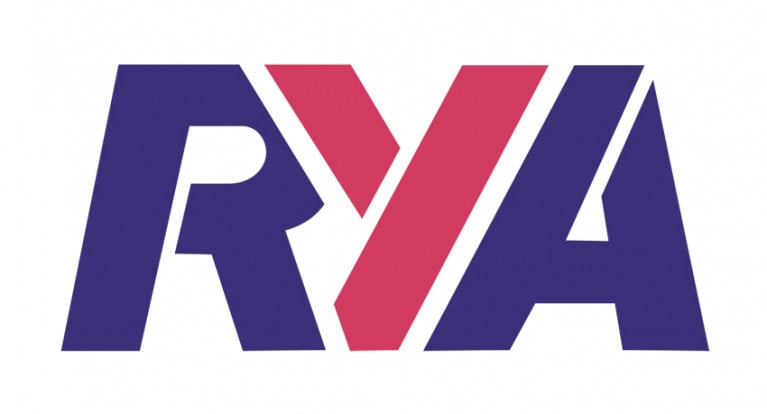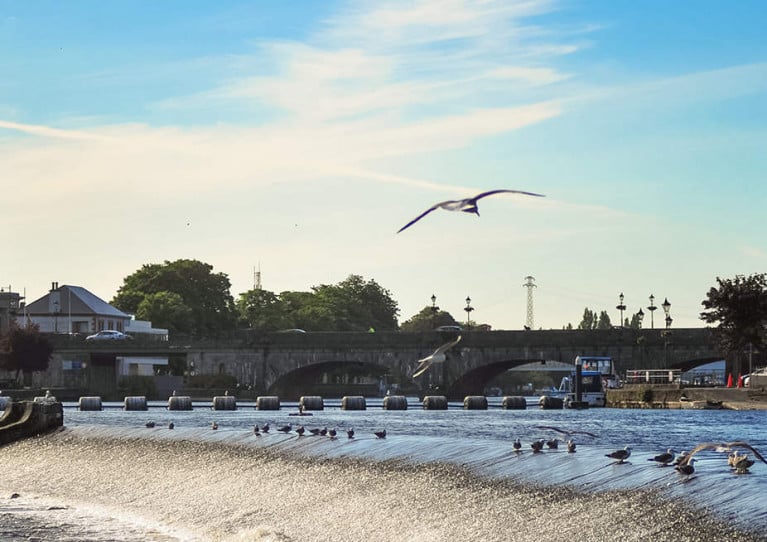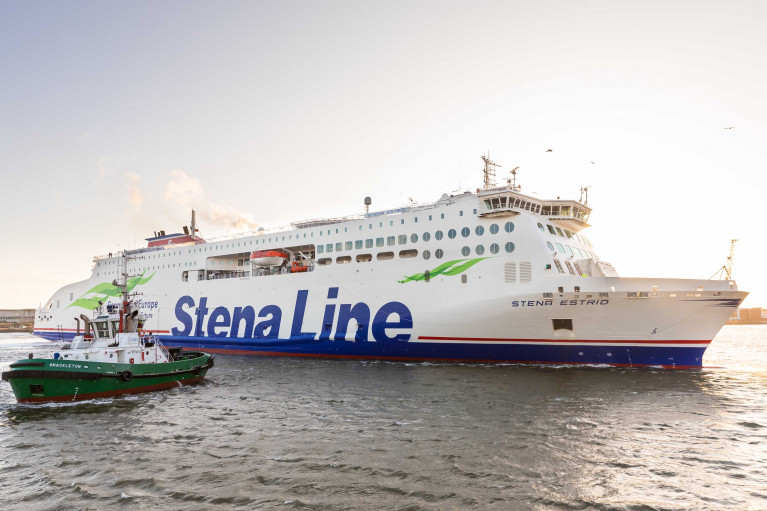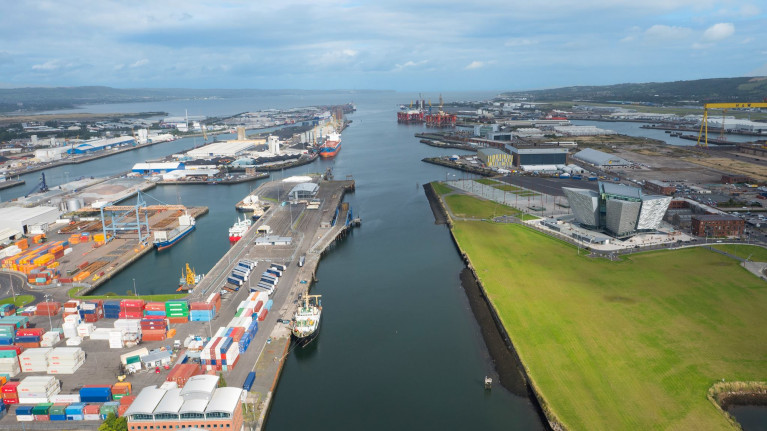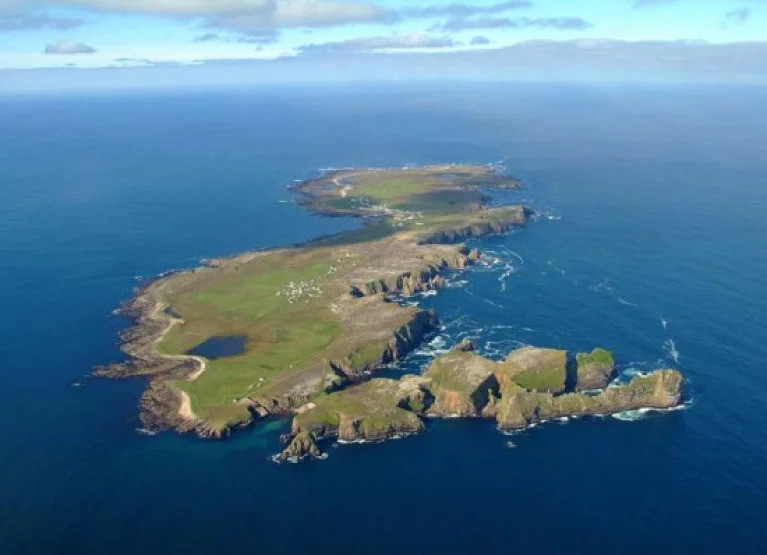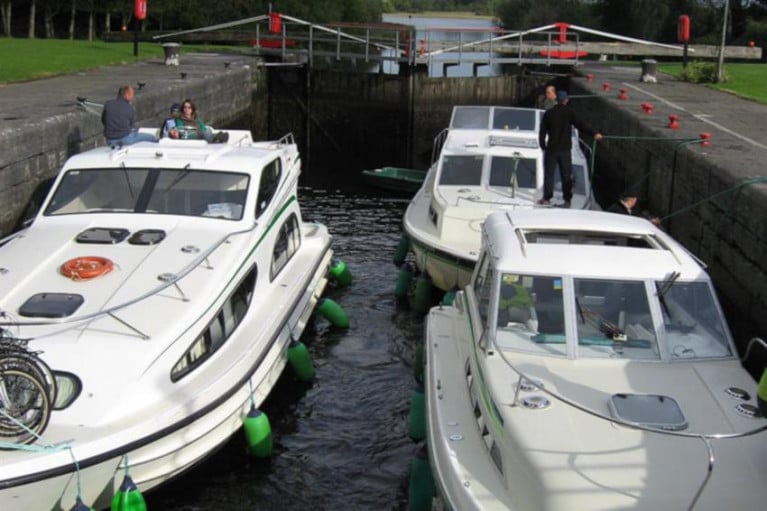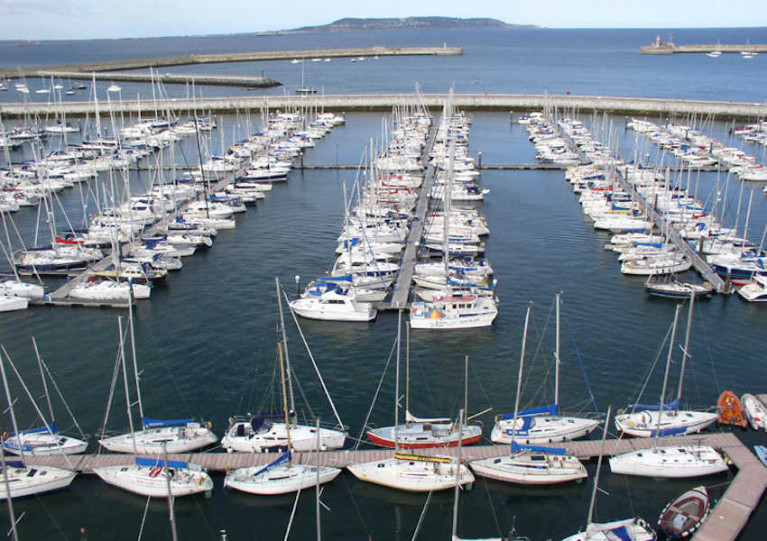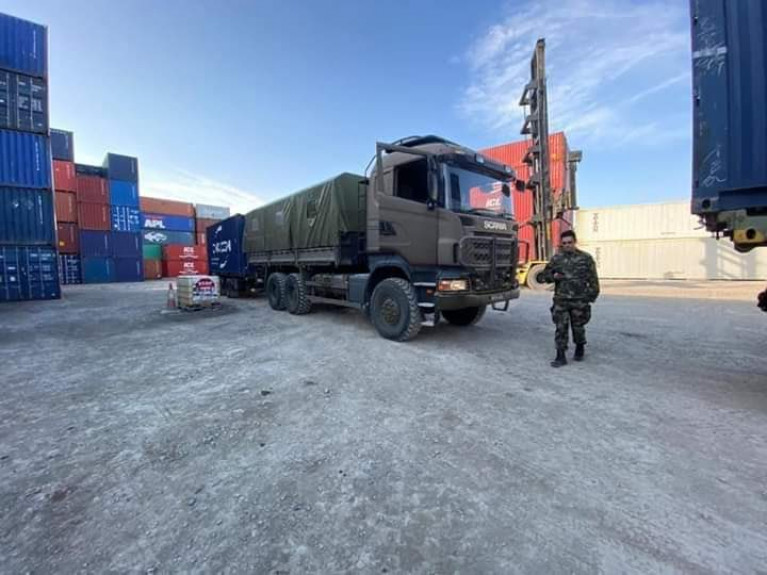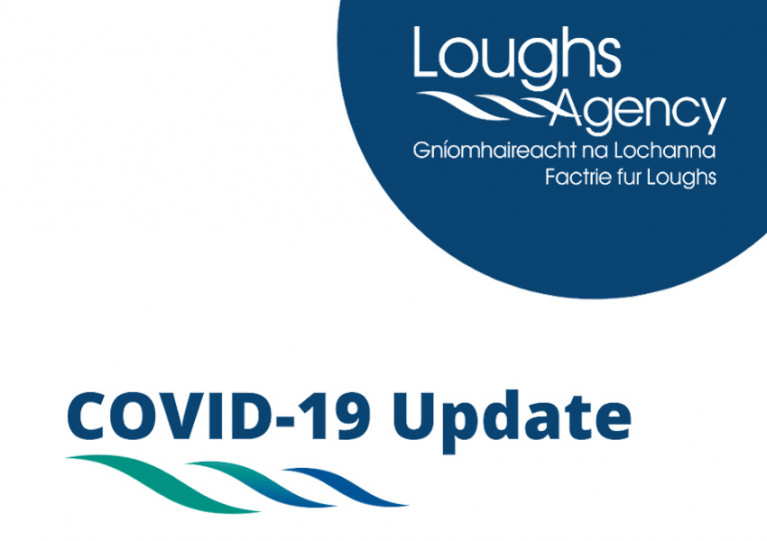Displaying items by tag: COVID19
RYA Urges British Boaters To Think Again Before Cancelling Payments & Support Local Networks
British boaters are being encouraged to support their local boating networks wherever possible during the ongoing Covid-19 pandemic.
As Boating Business reports, the RYA is asking people to think again before cancelling payments to sailing clubs, marinas, class associations and other marine-related bodies to support them through the lockdown period.
“During these hugely challenging times people are looking at where they can cut costs,” said RYA sport development manager Alistair Dickson.
“However, we would urge boaters to think carefully about whether they need to cancel direct debits, subscriptions or other payments as many organisations will be depending on this support to them through this difficult period.”
In Northern Ireland, the RYANI says it will “endeavour to keep meaningful engagement with all clubs and organisations” as it briefs Stormont on the challenges facing the NI boating community and calls for inclusion in Executive support packages.
Waterways Ireland Announced Closure Of Locks To Boat Traffic & Restricted Use Of Towpaths
Waterways Ireland advises all masters of vessels and users of Ireland’s inland waterways that the following closures are in place as of midnight last night, Monday 30 March:
- All locks on all navigations are closed until further notice.
- All service blocks are closed until further notice.
- The Winter Mooring period on the Shannon Navigation and Shannon Erne Waterway has been extended until Thursday 30 April. There will be no additional cost for this extension.
Waterways Ireland is encouraging all users of vessels on its navigations not to take part in any activity on the water in order to comply with the directions of both the Irish and British Governments.
Towpaths remain open but Waterways Ireland is encouraging locals who live in their vicinity to use them in accordance with Government guidelines for brief physical exercise, within 2km of their home, always observing social distancing protocols.
Where towpaths are likely to be busy, users are asked to restrict use, where possible, and only use those towpaths which are local, quiet and largely free of moored vessels.
Waterways Ireland confirms that operational staff, water patrollers and lock keepers will continue to undertake essential management of water levels, and any emergency works that may arise, under strict social distancing protocols.
In a statement, Waterways Ireland said: “We are aware of the potential impacts for the community of these decisions, and the difficulties this may present. At this time we would normally see the season kicking off and people de-winterising their craft and finishing off maintenance to be ready to get out on the water.
“These measures are being taken to support the national effort in keeping people safe, protecting our staff, colleagues, partners and everyone who visits, or lives on and around our canals and river navigations. We will continually review such measures in light of direction and advice from Government and health professionals and any decisions on service provision will be communicated.”
In the meantime, work continues on Waterways Ireland’s Heritage Plan 2016-2020, as well as the cross-border body’s Learning Zone online portal to assist families home schooling. Waterways Ireland can be contacted by email at [email protected] or by phone.
Ferry operator Stena Line in response to the impact of the Coronavirus as it tightens its grip on everyday life across Europe, has moved to reassure freight and travel customers.
The operator is taking every precaution possible to help ensure the safety of customers and employees, whilst maintaining the supply lines for vital medical goods and food supplies.
In the last few weeks Stena Line’s European business has been impacted significantly by COVID-19, but despite crippling trading circumstances, the biggest ferry company in Europe remains resolute in its determination to keep services going in strict adherence to Government guidelines on travel, as well as the very latest medical advice on helping to reduce the risk of spreading COVID-19.
Stena Line is asking customers to adhere to Government travel guidelines and the firm has put a host of measures in place to keep its customers and employees safe when travelling on its vessels. To assist passengers who need to reschedule their trips, Stena Line has also committed to waiving amendment fees for all travel bookings, until 30th April 2020.
All of Stena Line’s ferries are continuing to run on schedule, however, some services have restricted passenger numbers in order ensure strict social distancing guidelines are adhered to.
Stephen Bryden, Group Head of Onboard Sales & Services said: “We really are in uncharted waters right now so we are having to dig deep and use all of our experience and take the advice of the Governments where we operate, and their medical experts, to help us navigate our way through this crisis to. Keeping our customers and colleagues safe while keeping our important services operational is our main priority at the moment.”
“We are acutely aware of the responsibility we have to help maintain vital supply lines between the UK and Ireland, as well as Continental Europe. Our services and work colleagues will be put under immense strain in the weeks and months ahead. We appreciate people will still need to travel for essential reasons and we will be there to support them.”
“Now, more than ever, Freight supply lines are vital to help keep the supermarkets stocked and ensure critical medicines and medical equipment are delivered. We will do everything within our means to keep these important logistics routes open and functioning.”
Recently Stena Line has introduced a large number of additional measures on top of its existing high health and safety standards in a bid to help safeguard its passengers and crew during the COVID-19 crisis including the following:
· Staged embarkation and disembarkation, with all arriving passengers asked to clean hands
· Hand sanitisers available for customers and staff use throughout
· ‘High contact’ surfaces sanitised on a regular basis
· Freight drivers have their own cabin
· Social and Counter Distancing measures in line with governmental recommendations
· Electrostatic Fog Machine for deep cleaning of specific areas (Irish Sea routes)
· Cashless payments are requested in all payment points
· Personal Protective Equipment (PPE) kits for and staff
· Use of contactless thermometers to help should someone show any symptoms
· All newspapers & magazines removed to reduce the risk of cross contamination
· Isolation cabins have been allocated and set aside should they be needed
· Daily staff briefings for crew and strict guidelines to adhere to
· Detailed Evacuation Plan (ship and shore) for affected customers/crew
Stena Line will continue to operate its Ireland and UK sailing schedules as normal, however, given the now daily changes in prevailing circumstances and Government advice, sailing schedules are naturally under constant review.
For the very latest information, Stena Line customers are advised to contact: 01 907 5555 (Ireland) and 03447 707 070 (UK)
For information on the Coronavirus click HERE.
Belfast Retired Shipping Boss Back At Work on the Docks
A former boss of a Belfast Harbour based shipping company has come out of retirement and gone back to work to help out during the coronavirus pandemic.
Ex-William Reid director Alan Dunlop made the decision to return after four employees decided to self-isolate.
The 67-year-old said: "William Reid battled through the worst imaginable trading circumstances.
For more on this story reports Belfast Telegraph here.
Unexpected Yacht Arrival Troubles Tory Island Residents
RTÉ News reports that Tory Island residents sought the assistance of gardaí and the Irish Coast Guard after a yacht berthed unexpectedly at the Co Donegal island’s pier last night (Friday 27 March).
The yacht’s four crew were spoken to by the local coastguard unit and reminded of the updated measures to curb the spread of Covid-19, which include limiting travel to offshore islands only to residents.
Personal Use Of Vessels For Leisure Purposes Now Prohibited
In a statement to its members, the Inland Waterways Association of Ireland (IWAI) confirms that personal use of vessels for leisure purposes is now prohibited under the Government’s added restrictions on movement to combat Covid-19.
“All citizens on the island must now stay at home except in the most limited of circumstances as determined by the governments in both jurisdictions,” said the preservation group for all of Ireland’s working inland waterways navigations.
Following the Taoiseach’s address to the nation last night (Friday 27 March), the IWAI also emphasises that “face-to-face meetings, such as branch meetings, must be postponed” until at least after Easter Sunday.
“Where branch committees wish to continue to perform their duties, this can only be done using technology to manage meetings rather than face-to-face … All planned indoor gatherings must be postponed.
“All outdoor gatherings are banned, therefore all cruises in company, rallies and work parties must be postponed.”
Dun Laoghaire Marina has been closed to berth-holders with immediate effect, following the Taoiseach’s announcement last night (Friday 27 March) of more measures restricting movement to slow the spread of Covid-19.
In a statement sent out following Leo Varadkar’s address to the nation, Dun Laoghaire Marina general manager Paal Janson confirmed that the facility is now “shut completely, as directed by the Government, for a period of 14 days” from midnight this morning, Saturday 28 March until Easter Sunday, 12 April.
He added: “There will be no access to berth holders, contractors or any visitors. Fuelling for boats will cease for this period also. The marina will maintain access for necessary state and emergency service vessels, etc.”
In addition, new travel restrictions have been extended to “the arrival of personal non-national maritime leisure vessels is banned (except to exceptions as ‘port in a storm’)”, according to the Government.
Janson continued: “Marina staff come under the category of essential workers and will be present at the marina throughout this period. Your boats will be checked daily and staff will deal with any issues that arise. We will be contactable throughout on [email protected] and 01 2020040.
“We are now about to sail into the worst of this storm and it’s time to heave-to and weather it as best we all can. We respectfully ask that you follow Government guidelines and stay at home.”
Prior to the Taoiseach’s address, the Royal Cork Yacht Club announced the cancellation of Cork Week this July and all planned Cork300 events from now until August, while the Department of Transport issued guidance to the maritime industry on measures in response to the virus.
Dept. of Transport Issue Covid-19 Guidance Measures Among them Maritime Transport Sector
The Department of Transport, Tourism & Sport (DTTAS) has issued transport related measures (incl. Maritime) currently in place in response to Covid-19 which are set out below.
DTTAS added given that this is a rapidly evolving situation this page (click HERE) will be updated as required.
As for the central online Government hub to view the latest information on how Ireland is responding to cases of Covid-19.
Among the guidlines are detailed below concerning the Maritime Transport sector and those associated from hauliers using Irish Ports, their dockers and staff etc.
Maritime Measures
Cruise ship travel
All scheduled cruise ship travel has ceased. The National Health and Emergency Planning Team agreed that no cruise ship will be permitted to enter any Irish port or anchor in Irish waters.
Marine Notice No.6 of 2020 COVID-19 (2019nCoV) - Maritime Declarations of Health
This Marine Notice communicates instructions from the Health Service Executive (HSE) on the submission of Maritime Declarations of Health.
Marine Notice No.14 of 2020 Temporary Contingency Planning for Certification of Seafarers - COVID-19
This Marine Notice sets out the temporary measures being put in place in relation to the validity of seafarers’ documents impacted as a result of the COVID-19 pandemic: to extend the validity of Irish seafarer certifications (by 6 months) and Irish flagged vessels (by 3 months) which remove administrative issues for those seafarers and vessels requiring renewal over the coming 3 months.
Marine Notice 15 of 2020 Temporary Contingency Planning for the Surveying and Certification of Irish Registered Ships –COVID-19
This Marine Notice sets out temporary contingency measures put in place to extend the validity of ship certificates where a survey cannot be carried out in advance of the expiration of the certificate. This includes provision for intermediate surveys and inspections.
For much more information as alluded above, consult the Gov.ie website HERE In addition the Dept. of Agriculture, Food & Marine (homepage) web here.
Loughs Agency Updates On Operations Due To Covid-19
Following the UK Government’s advice in relation to Covid-19, the Loughs Agency has put in place a number of measures to maximise capacity to continue to deliver business and statutory services to the public.
The public are still encouraged to report illegal angling or pollution concerns through the Waterwatch App or 24-hour response line on +44 2871 342100.
Loughs Agency offices remain closed and customers are strongly encouraged to engage using email ([email protected]) and telephone (+44 2871 342100).
Those wishing to pay bills or undertake other financial transactions with the Loughs Agency are requested to do so online, via telephone or by bank transfer.
Staff will be, if possible, working from home. In these circumstances there may be delays in replying to queries.
The agency adds that it is currently experiencing technical difficulties with its elicence website, and is working to try and fix the issue as quickly as possible.
Regarding the current restrictions announced by the Irish and UK Governments, the cross-border body for fisheries in Carlingford and Foyle reminds that the only permitted activities that have been specified are walking, running and cycling for the purpose of local daily exercise.
“We must all do what is required of us by the Government’s and work together to fight this pandemic. This is about saving lives and supporting our healthcare systems and frontline staff,” it added in a statement.
Warning Over Wet Wipes ‘Spreading Covid-19 Via Ireland’s Waters’
Improper disposal of wet wipes could cause the coronavirus to spread via Ireland’s recreational waters, it’s being claimed.
The Green News reports on Coastwatch Ireland’s warning over the use of wet wipes, which are linked to around 90% of wastewater overflows as households flush them instead of binning them.
With a much larger volume of such wipes being used, both in the bathroom and to keep surfaces clean in homes amid the Covid-19 outbreak, there are fears that treatment plants and septic tanks could be pushed past their limits and spread the virus.
The Green News has more on the story HERE.


























